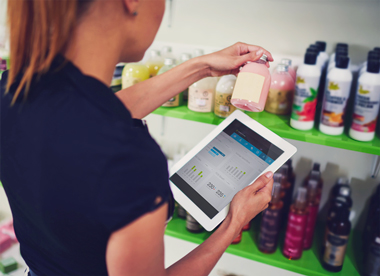 Understanding the differences between offline capabilities is the first step in selecting the right mobile solution for your enterprise. For consumer goods companies, there is a huge variance in the offline experience major mobile app vendors offer. That’s why it’s so important to make sure the ‘offline’ you think you’re buying is the ‘offline’ you’re actually getting.
Understanding the differences between offline capabilities is the first step in selecting the right mobile solution for your enterprise. For consumer goods companies, there is a huge variance in the offline experience major mobile app vendors offer. That’s why it’s so important to make sure the ‘offline’ you think you’re buying is the ‘offline’ you’re actually getting.
While companies are increasingly going online to execute mission-critical tasks, it simply isn’t possible to be connected to the Internet all the time. This is why traditionally online-only application developers like Google and Salesforce now offer advanced offline options as well. Today, most enterprise mobile apps provide some degree of offline functionality. But is it enough to satisfy the demands of your CPG business?
Simple vs. Complex Offline
With so much variation between the functionalities and benefits of offline applications, it’s important to distinguish between ‘simple’ and ‘complex’ mobile applications.
Simple Form of Offline Apps
The ‘simple’ form of offline apps are able to store small amounts of user data directly on a device during intermittent network loss. This allows users to pause and save their workflow, but data isn’t sent to a server until connectivity is restored. This often results in discrepancies between data stored on mobile devices and data stored in ERP systems — leading to inaccurate data collection and analysis.
Complex Form of Offline Apps
‘Complex’ offline apps have greater storage capabilities and are designed to work in offline mode over long periods of time. These ‘true’ offline apps offer advanced capabilities like secure storage of master and transaction data, data sync and orchestration, and conflict resolution.
The Benefits of True Offline
To determine which enterprise mobile app is right for your company, it’s important to understand the advanced functionalities of today’s leading ‘true’ offline apps. All complex or ‘true’ offline apps should:
- Store transactional and master data on devices
With the need to sync large amounts of transaction data back to ERP systems, field employees need an application that can store and manage data automatically. - Seamlessly sync data that has been stored for a long period of time
True offline apps can can take data that’s been stored for days or weeks and sync it with complex ERP systems without the end user ever knowing, creating a seamless, uninterrupted user experience. - Manage data syncing conflicts
The data stored on an offline application is likely to be different than what is in the ERP system, but a true offline app manages these differences through error-free syncing. - Securely store data within the app
To ensure maximum security, true offline apps never store data in a device’s cache or browser, relying on comprehensive data storage encryption instead.
The Spring Global Difference
Spring is the only provider of consumer goods mobile apps to offer ‘true’ offline functionality. By incorporating ‘true’ offline capabilities into all our apps, we help consumer goods companies power mission-critical business processes and drive significant productivity and revenue gains.
We have built our reputation on connecting the CPG industry’s most innovative technologies to optimize business processes, increase productivity and facilitate superior customer interactions – all with a clear focus on maximizing ROI.


